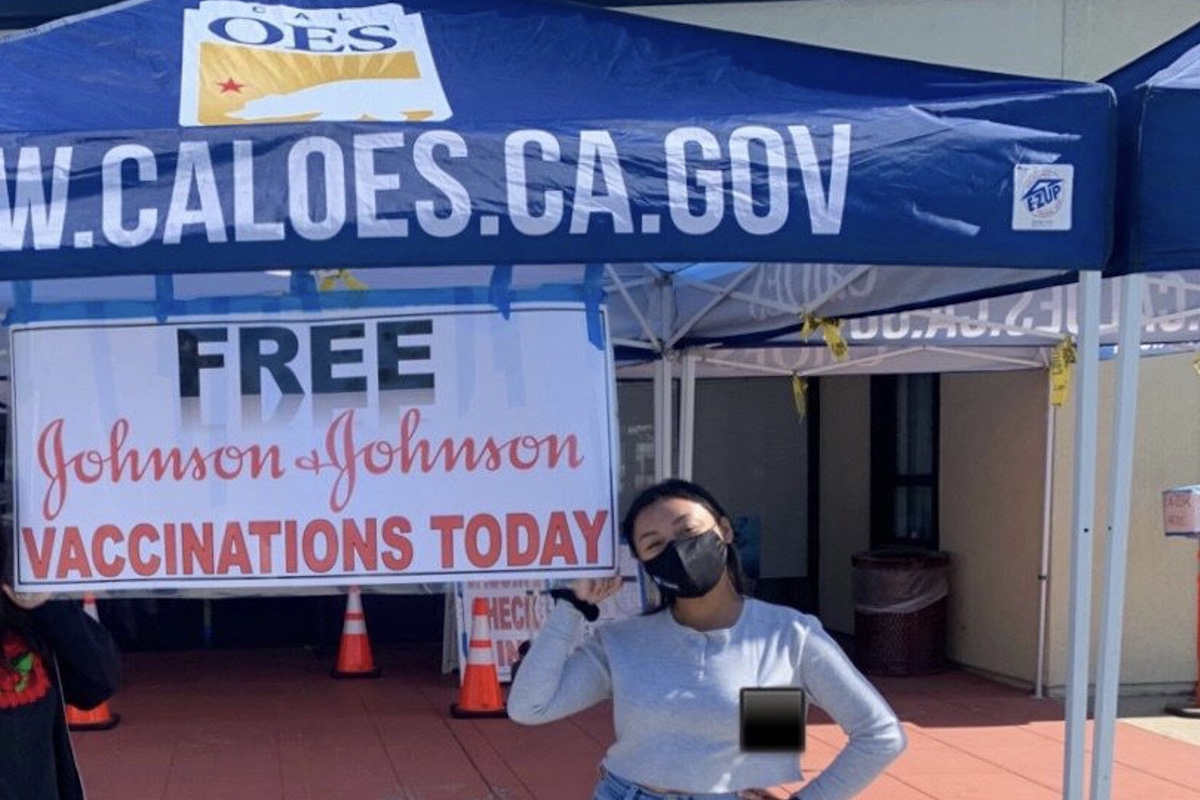Contra Costa Health Ambassador Program Pathway to Permanent Healthcare Jobs
Sabrina Villaro had just graduated college and was searching for a job on LinkedIn when she came across a position that caught her eye. It was a job with the Health Ambassador Adult Pilot Program, which launched January 2021 through a partnership between the WDBCCC, Contra Costa County Employment and Human Services and Contra Costa Health Services.
“The role was in response to the COVID pandemic, and I thought from the job description a lot of it was going to be hands-on experience that I wouldn’t be able to get if this wasn’t the current situation with COVID,” Villaro recalled. “I just thought it was an experience I wasn’t going to be able to get somewhere else.”
Villaro applied and joined other previously unemployed individuals to become health ambassadors in underserved neighborhoods, promoting COVID-19 vaccine distribution efforts in their own communities. The program is just one way that WDBCCC is working to achieve equity within the workforce system. (Read our other blog articles.)
Health Ambassador Program Funding
WDBCCC identified and allocated Workforce Innovation & Opportunity Act (WIOA) funding to help Health Services carry out the activities of the program. The participants’ employer of record is Heluna Health, and Rubicon Programs assists with recruitment and enrollment of program participants.
“This program is the most direct and immediate way to get vulnerable populations to work performing critical community services, while building the skills and experience necessary to gain entry to the health field, which is one of WDB’s priority sectors,” said WDBCCC Program Manager Jed Silver. “Getting people vaccinated also facilitates businesses opening back up and employing people, which in turn revitalizes and contributes to a thriving and sustainable regional economy.”
The Health Ambassador Adult Pilot Program runs through Oct. 31, (update: the program has been extended through June) though WDBCCC is working to identify additional funding to keep the program going, as healthcare is a priority sector for the region. WDBCCC will continue working with ambassadors beyond October to help them decide their next steps, such as additional training, permanent job placement or follow-up services.
Good Field Experience Leads to a Permanent Job
Villaro had just graduated from San Francisco State University with a bachelor’s degree in Public Health when she landed the health ambassador position. The job gave her good field experience, including setting up mobile vaccination sites and larger vaccination clinics. She conducted canvassing and community outreach. She also had the opportunity to sharpen her public-speaking skills.
“As an ambassador, we are doing our best to promote health equity in our most disadvantaged communities by providing specific needs catered to that community,” Villaro said. “For example, having evening/late hours for our mobile vaccination clinic or ensuring that we have enough Spanish-speakers for a community whose demographic is majority Hispanic. We really wanted to be sure health information about COVID was accessible to everyone in the community.
“Ultimately, being an ambassador allowed me to work toward reducing health disparities related to COVID-19 and being able to do that for my own community made it more worthwhile.”
In August, Villaro’s experiences as an ambassador helped her to move on to a permanent position as a program assistant for a clinical trials unit operating within the San Francisco Department of Public health that conducts research for HIV prevention and treatment.
Coverage of the Health Ambassador Adult Pilot Program
The Health Ambassador Adult Pilot Program was featured on NBC Bay Area in May. You can see the news coverage here.
Photo Caption: Sabrina Villaro poses on the job as a Health Ambassador.





